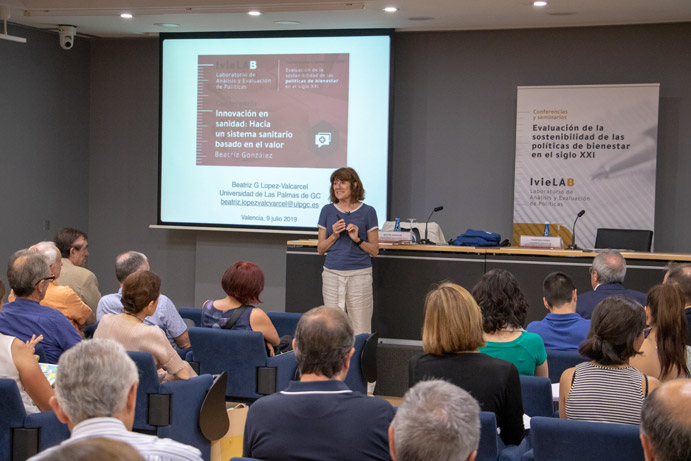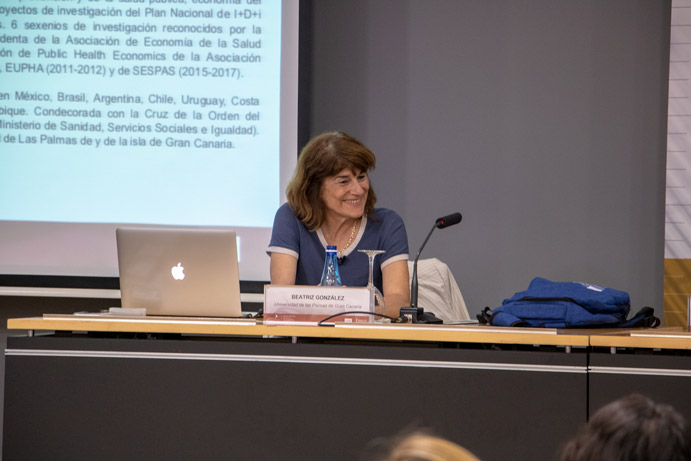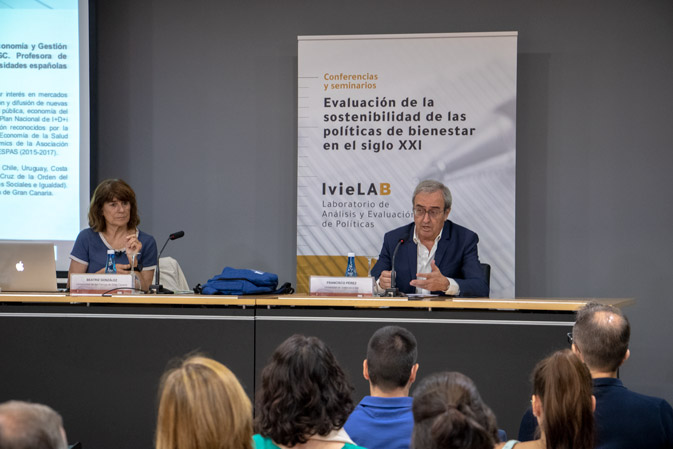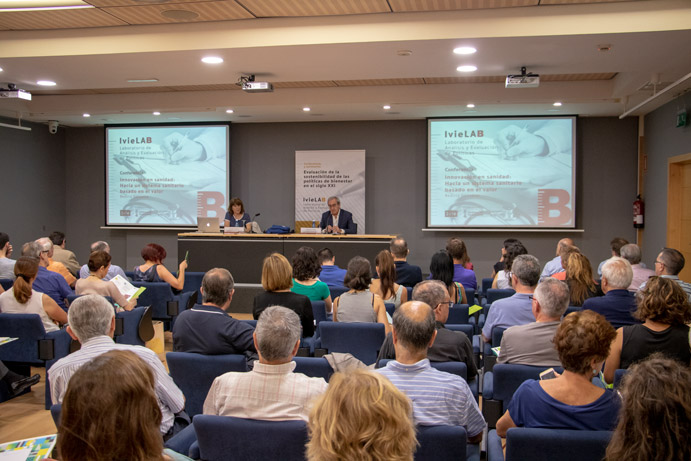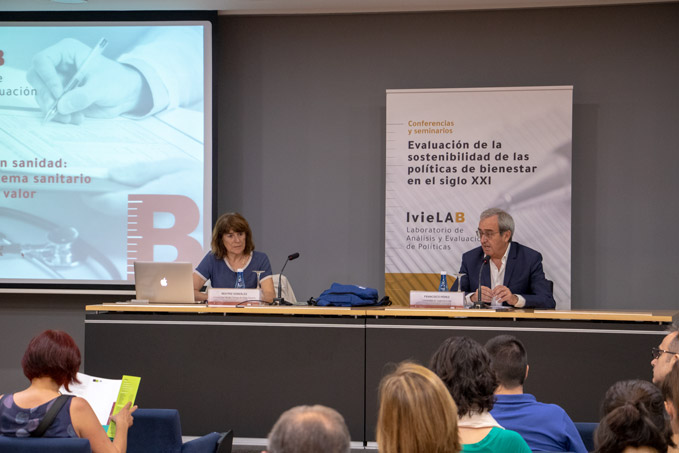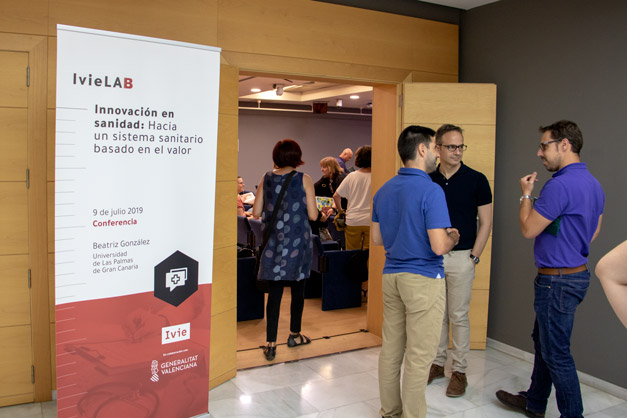Esta web utiliza cookies para que podamos ofrecerte la mejor experiencia de usuario posible. La información de las cookies se almacena en tu navegador y realiza funciones tales como reconocerte cuando vuelves a nuestra web o ayudar a nuestro equipo a comprender qué secciones de la web encuentras más interesantes y útiles.
News
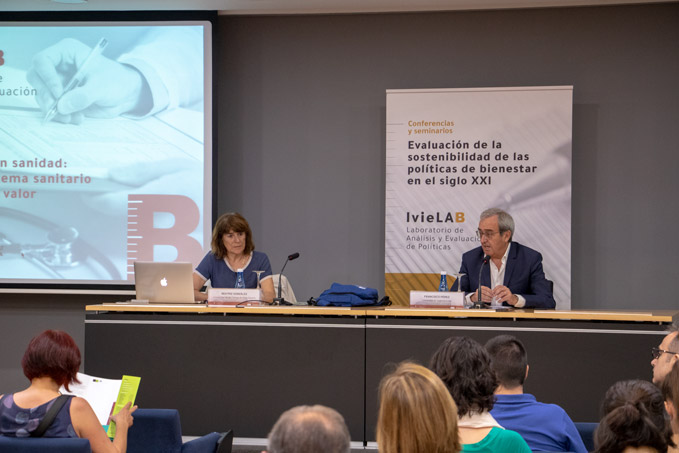
Beatriz González: "public health spending has dropped 1.8% since 2009, while private has increased 27%"
Health economics expert, Beatriz González warns of the risk entailed by the middle-class preference for private over public healthcare , except for high-cost treatments
An ageing population, an increase in chronic diseases and new technologies that increase the cost of medical treatments are some of the factors that threaten the sustainability of the Spanish public health system, according to Beatriz González López-Valcárcel, professor at the University of Las Palmas de Gran Canaria and health economics expert. In her IvieLAB lecture, organized by the Ivie in collaboration with the Valencian Regional Government, she highlighted that the growth in private healthcare spending and in the number of privately insured people may result in a system like that predominant in Latin America, where the middle-class opt for private insurance but resort to public healthcare for high-cost treatments. This development places the sustainability of the public healthcare system at risk because it undermines tax collection in benefit of all.
This trend has aggravated since the onset of the crisis. Between 2009 and 2017, total healthcare spending in Spain increased by 5.2%, but growth was unevenly distributed between private and public expenditure, with the former growing by 27.2% and the latter falling by 1.8%. Private expenditure as a share of the total spend on healthcare went from 24% in 2009 to 29% in 2017.
Beatriz González also highlighted the risk entailed by the use of new technologies for the sustainability of the health system in Spain, as these account for 33% to 50% of the increased spending on health. In particular, she mentioned the high cost of certain treatments such as biologics used to treat cancer and autoimmune diseases, which have resulted in a substantial increase in health spending. According to González, the elevated costs of these types of treatments is contributed by patents strangling competition in the pharmaceutical industry due to a fragmented and uncoordinated public sector that is not able to collectively leverage its purchasing power.
To counteract the growing cost of new technologies, Gonzalez proposes joint agreements between the administration and pharmaceutical companies, determining the cost of treatment by the outcome for the patient’s health. Gonzalez emphasized that “for confidential agreements between hospitals and pharmaceuticals, transparency seems to be a wise principle to apply that is compatible with social values.”
The concluding part of her speech focused on the potential of organizational innovations in making the healthcare system more sustainable, denoting, as the greatest challenges faced by the system: establishing integrated care, eliminating barriers between primary and specialized care, developing chronicity strategies based on population stratification, specialized attention according to risk groups, and a changed approach to human resource management.





